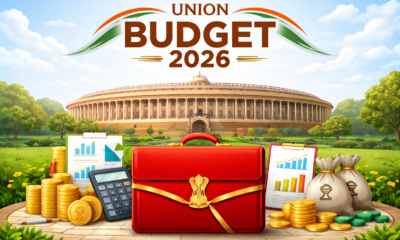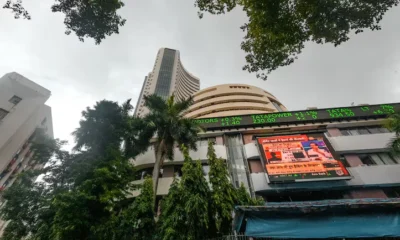[vc_row][vc_column][vc_column_text]The Reserve Bank of India (RBI) today – Friday, Oct 4 – cut its repo rate by 25 basis points to 5.15 percent, the fifth time this year, in a bid to boost the flow of credit and reverse economic slowdown. [/vc_column_text][/vc_column][/vc_row][vc_row][vc_column][vc_column_text css=”.vc_custom_1570179377756{border-top-width: 10px !important;border-right-width: 10px !important;border-bottom-width: 10px !important;border-left-width: 10px !important;padding-top: 10px !important;padding-right: 10px !important;padding-bottom: 10px !important;padding-left: 10px !important;background-color: #b2b2b2 !important;border-radius: 10px !important;}”]Repo rate is the rate of interest at which the RBI lends money to commercial banks, reverse repo rate is the rate at which it borrows.
One basis point is a hundredth of a percentage point and 25 basis points means 0.25%.[/vc_column_text][/vc_column][/vc_row][vc_row][vc_column][vc_column_text]The central bank also decided to continue with an accommodative stance “as long as it is necessary” to revive growth, while ensuring inflation remains within the target.
All members of the six-member Monetary Policy Committee (MPC), that met on October 4 to review interest rates, voted to reduce the policy rate, the RBI said.
With this cut, the repo rate, which serves as the MPC’s policy rate, has been reduced for the fifth consecutive time this year, the total coming to 135 basis points. Lower interest rates are expected to make home and vehicle loans cheaper. However, banks have passed on only a fraction of these cuts so far, said reports.
The MPC meeting comes in the backdrop of RBI’s mandate to banks to link their loan products to an external benchmark, like repo rate, for faster transmission of reduction in policy rates to borrowers, from October 1.
The MPC also sharply reduced its growth forecast for the fiscal year 2019-2020 to 6.1% from 6.9% earlier. The committee noted that risks to growth have emerged due to weak domestic demand and sagging export prospects on account of continuing trade tensions. MPC on the other hand retained its consumer price inflation forecast for the second half of the fiscal year 2019-202 as expected at 3.5%-3.7%
The RBI said that while these measures are likely to help strengthen private consumption and spur private investment activity, the continuing slowdown warrants intensified efforts to restore the growth momentum.
The Indian economy grew at the pace of just 5 percent in the June-ended quarter, it’s slowest since 2013. This triggered a slew of measures by the government and the central bank in past few months, including a corporate tax rate cut and setting up loan melas to encourage fresh investments.
Inflation has remained well within the MPC’s target of 4 percent for the past 13 months, giving room for the central bank to respond with policy rate cuts.
“With inflation expected to remain below target in the remaining period of 2019-20 and first quarter of 2020-21, there is policy space to address these growth concerns by reinvigorating domestic demand within the flexible inflation targeting mandate,” RBI said.
The MPC was largely expected to vote in the favour of a rate cut and back government’s efforts to address the current economic slowdown.
The MPC is next scheduled to meet during December 3-5, 2019.
The announcements from the six-member Monetary Policy Committee (MPC) came after a three-day meeting. The rate cut comes at a time when the Indian economy is facing its worst slowdown since the dip in economic activity following the global financial crisis of 2008-09.[/vc_column_text][/vc_column][/vc_row]


 India News23 hours ago
India News23 hours ago
 India News22 hours ago
India News22 hours ago
 India News13 hours ago
India News13 hours ago
 Cricket news12 hours ago
Cricket news12 hours ago
 India News11 hours ago
India News11 hours ago














